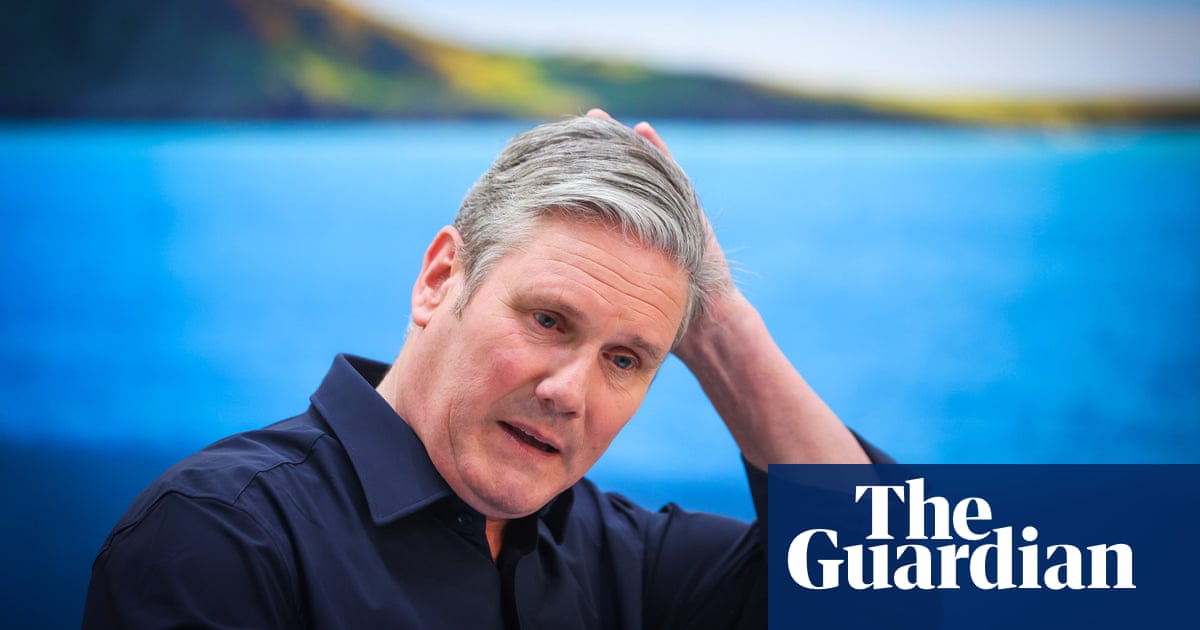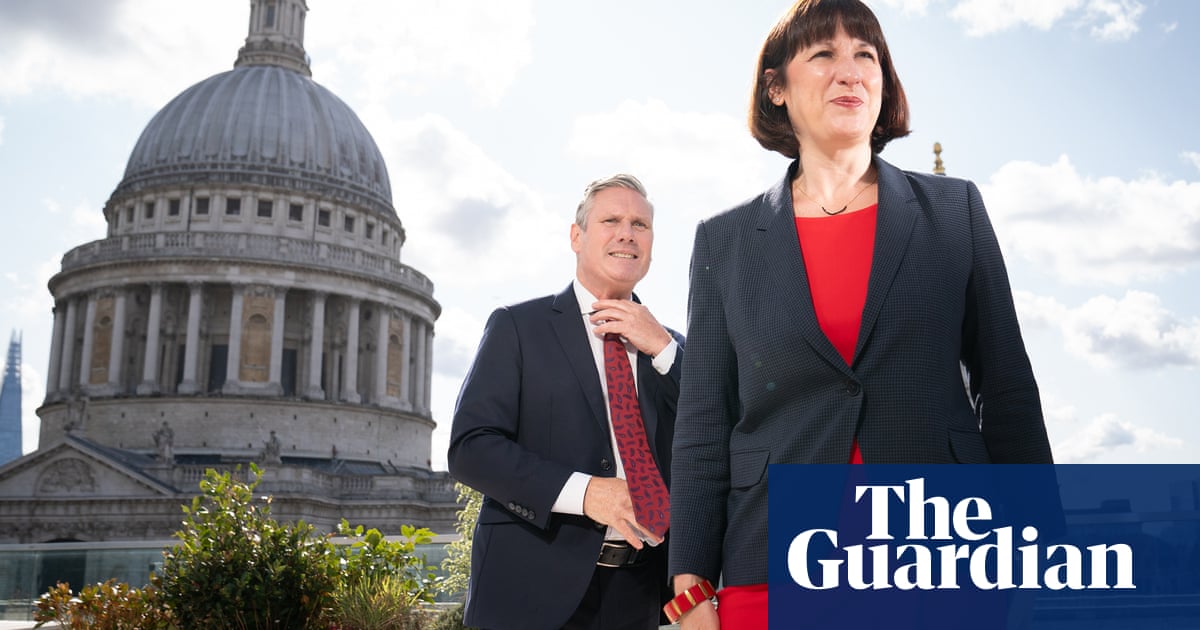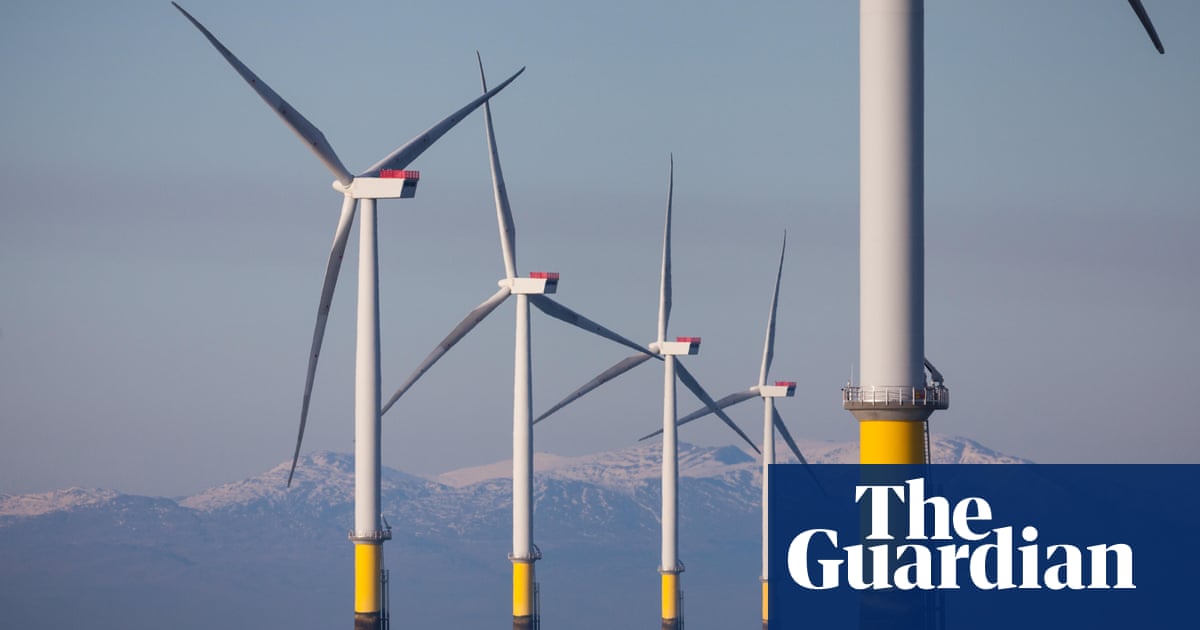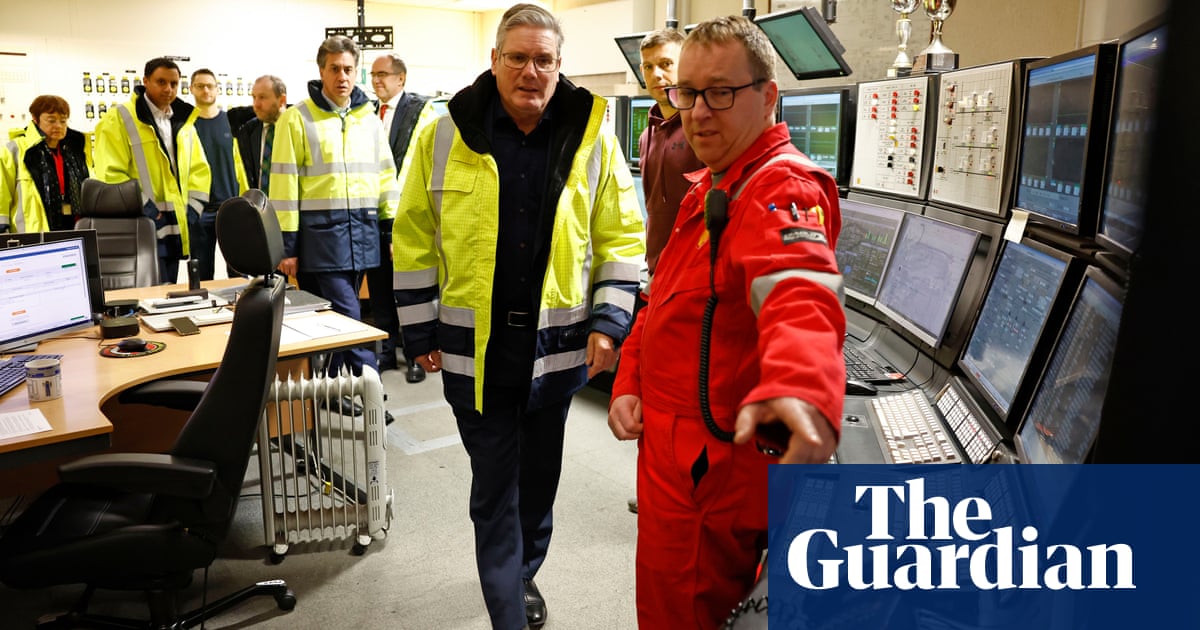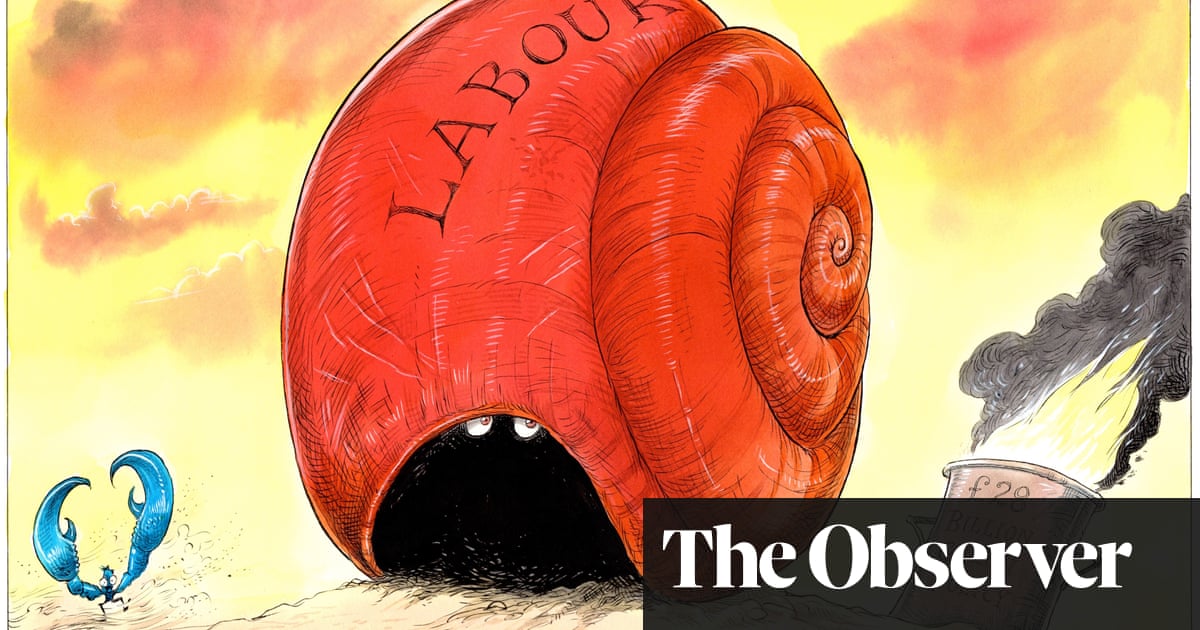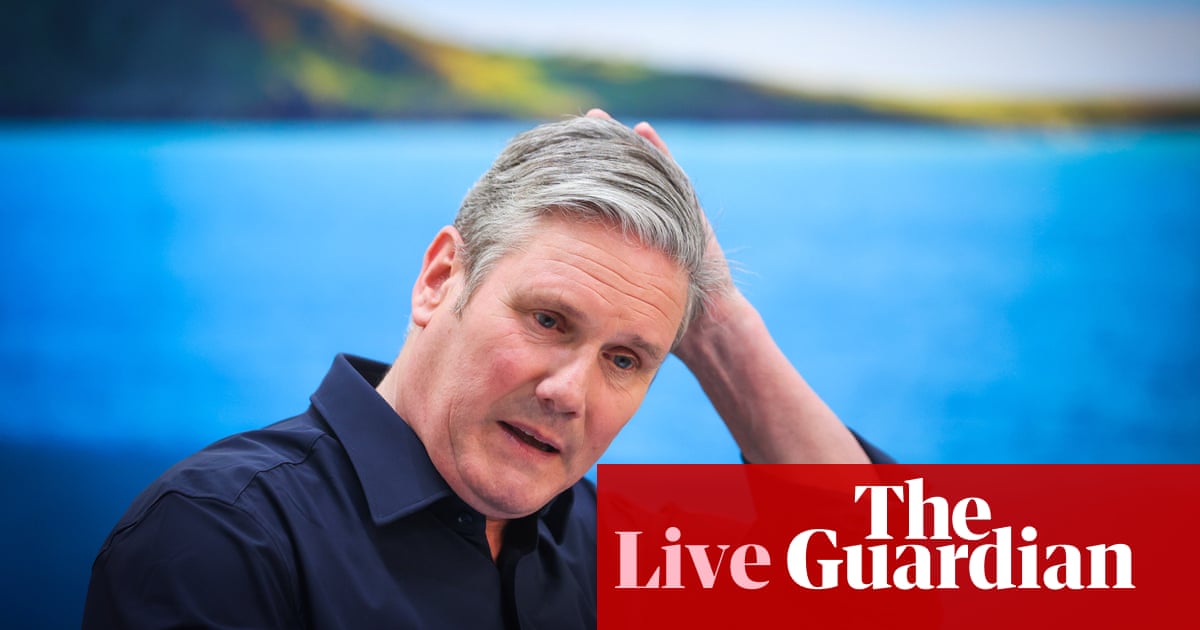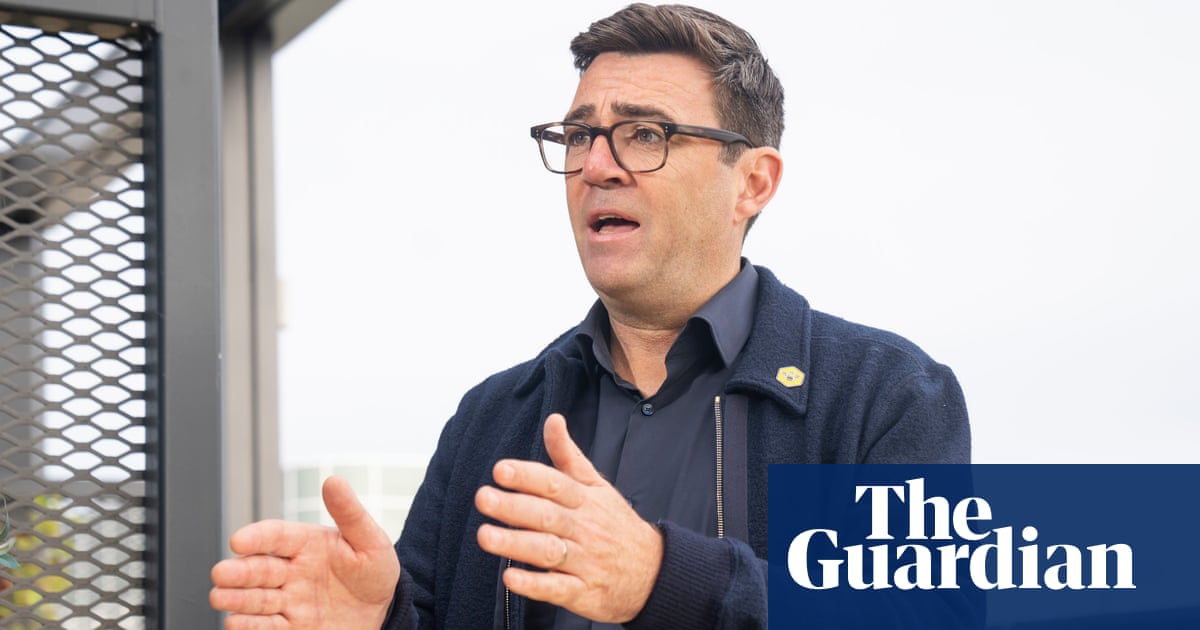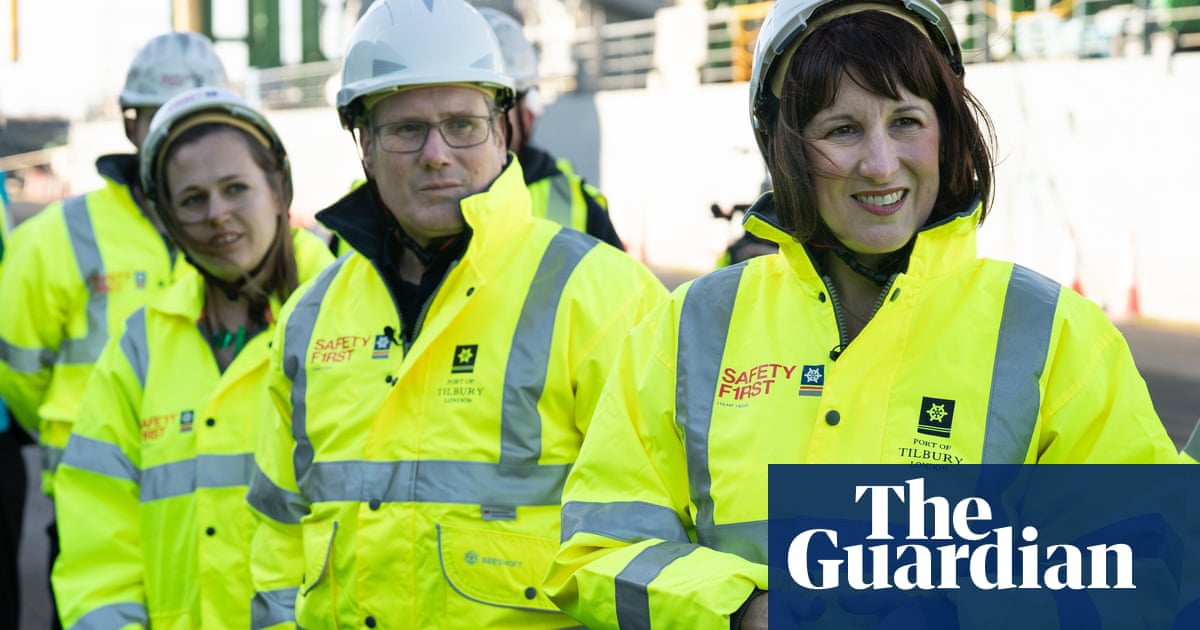
Keir Starmer and Rachel Reeves are ditching Labour’s flagship policy pledge to spend £28bn a year on green investment, party sources have said.
The sources said the party would keep the core mission of investing in green infrastructure, as well as already announced plans such as the creation of GB Energy, a publicly owned clean energy company, and a mass home insulation programme.
But it will in effect cut its green ambitions by about two-thirds, given that the previously announced schemes are set to cost just under £10bn a year by the end of the parliament.
The change, after a spate of recent government attacks portraying the £28bn figure as a likely tax rise, has been pushed for by key figures around Starmer including Morgan McSweeney, Labour’s director of campaigns, and Pat McFadden, the party’s campaigns coordinator.
In a series of media interviews after speeches by Reeves and Starmer to a conference in London attended by hundreds of business executives, the shadow chancellor was repeatedly asked about the £28bn figure and declined each time to back it.
Asked 10 times during an interview with Sky News, Reeves said of the plan: “I think what people need to know is that the fiscal rules are the most important thing for me … I know the importance of economic and fiscal stability and that will always come first.”
One shadow minister said: “The £28bn is definitely going as a figure. It will be changed to specific outcomes linked to specific investment, rather than being a random figure to be allocated at a later date.”
In a sign of how Starmer is likely to frame the decision, the source added: “It was always meant to be formally allocated before the general election, so this isn’t such a major departure really. It’s being firmed up, not dropped.”
While scaling back the green prosperity plan has been under consideration for some weeks, dropping the £28bn annual target, unveiled with great fanfare by Reeves at the Labour conference in 2021, would be politically risky for Starmer and his team.
Ed Miliband, the shadow net zero secretary, and his team still argue strongly for sticking with £28bn for environmental and political reasons.
Senior Labour sources insisted, however, that Miliband had signed up to the idea of dropping the £28bn figure while sticking to the schemes that had already been announced.
Polling released on Thursday by More in Common found that among people planning to vote Labour, the £28bn pledge is the second most popular potential manifesto promise, just behind abolishing tax breaks for private schools.
Of the 3,000-plus panel, 79% said they thought the next government should increase investment in tackling the climate crisis, with two-thirds saying this should be a priority.
Luke Tryl, of More in Common, said: “Labour might think that they are demonstrating fiscal prudence by dropping the £28bn climate investment, but our research shows that the investment remains a high priority for Labour voters and ditching it could well backfire.”
Another source of frustration for many MPs has been the incremental abandonment of the target, with the risk that voters will think Labour has dropped it only because it has become a source of Tory attacks.
One shadow minister said: “Good to drag this out as long as possible – very clever people.”
The move comes after Reeves told the business conference that Labour would not raise corporation tax above its current rate of 25% during the next parliament. A day earlier she said the party would not reinstate a cap on bankers’ bonuses if it wins the next election.




